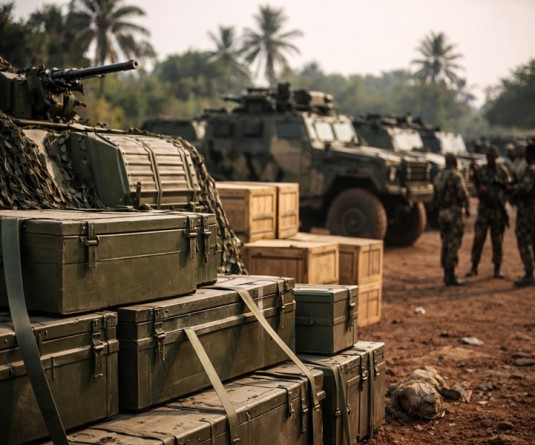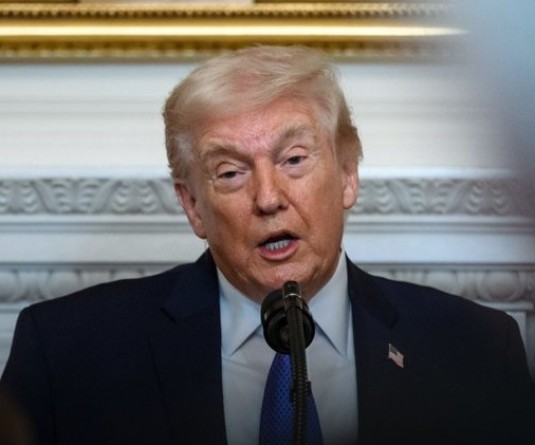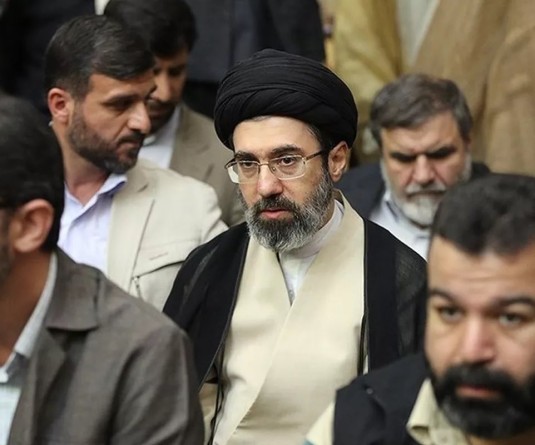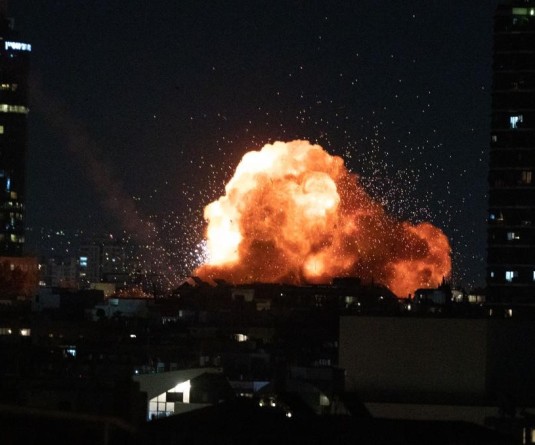
A southern Sudanese man watches a publicly televised broadcast of the formal announcement of referendum results in the southern capital of Juba , Monday, February 7. Referendum officials indicated that nearly 99 percent of all voters cast ballots in favor of southern independence. Southern Sudan will remain united with the north until the expiration of Comprehensive Peace Agreement in July 2011. (AP Photo)
JUBA, February 8 (AP): The mud-hut town of Juba has earned a promotion to world capital later this year. Only Southern Sudan needs far more than its own currency and a national anthem: Most of the roads here are dirt and even aid workers live in shipping containers. In a little more than five months, Southern Sudan is slated to become the world's newest country. Final results from last month's independence referendum announced on Monday show that 98.8 percent of the ballots cast were for secession from Sudan's north.
Juba is oil-rich but lacks the embassies and skyscrapers of other world capitals. There was only a mile or two of pavement here just a year ago, and the local archives are stored in a tent. Many, though, see great potential, and are excitedly looking forward to controlling their own destiny. Entrepreneur Soloman Chaplain Lui, 42, is overseeing the construction of 160 apartments and hotel rooms on a rocky bluff overlooking Juba. The country's largest swimming pool sits here, though its water is murky. His arm points toward empty fields where he hopes to one day build a mall and a golf course.
"As I talk to you now there are many people flowing here," he said. "A new country is being born." Two decades of war between the predominantly Muslim north and rebels in the Christian-animist south killed at least 2 million people before a 2005 peace agreement was reached. Residents are jubilant to have their own country at last, though much work remains. Decades of war and poverty have kept Southern Sudan in a decrepit state, and its 8.7 million people live in one of the least developed regions in the world. The U.N. says a 15-year-old girl here has a higher chance of dying in childbirth than finishing school. An estimated 85 percent of the population is illiterate.
Adding to the challenges, the prices of some everyday goods like sugar, soap and cooking oil have increased by more than 50 percent in recent weeks. "The list is long," said Athai Peter, 25, as he stood at a job advertisement board outside a U.N. agency on Monday. "The roads are so poor in many places that we have very high food prices." A new currency must be established. Diplomatic missions need to be opened. And a country name must be chosen. Critical negotiations still must be held with the north to decide on citizenship rights, oil rights and even the final border demarcation.
The U.S. national intelligence director warned last year of a possible new mass killing or genocide in Sudan over the referendum. That no longer looks likely. Sudan President Omar al-Bashir backed the final results Monday and said he wanted to be the first to congratulate the south on their new state. His remarks seemed designed to help ensure a continuous flow of southern oil through the pipelines in the north. About 98 percent of Southern Sudan's budget comes from oil revenue. U.S. President Barack Obama also congratulated the people of Southern Sudan for "a successful and inspiring" referendum, and said he intended to formally recognize the country as a sovereign, independent state in July 2011.






